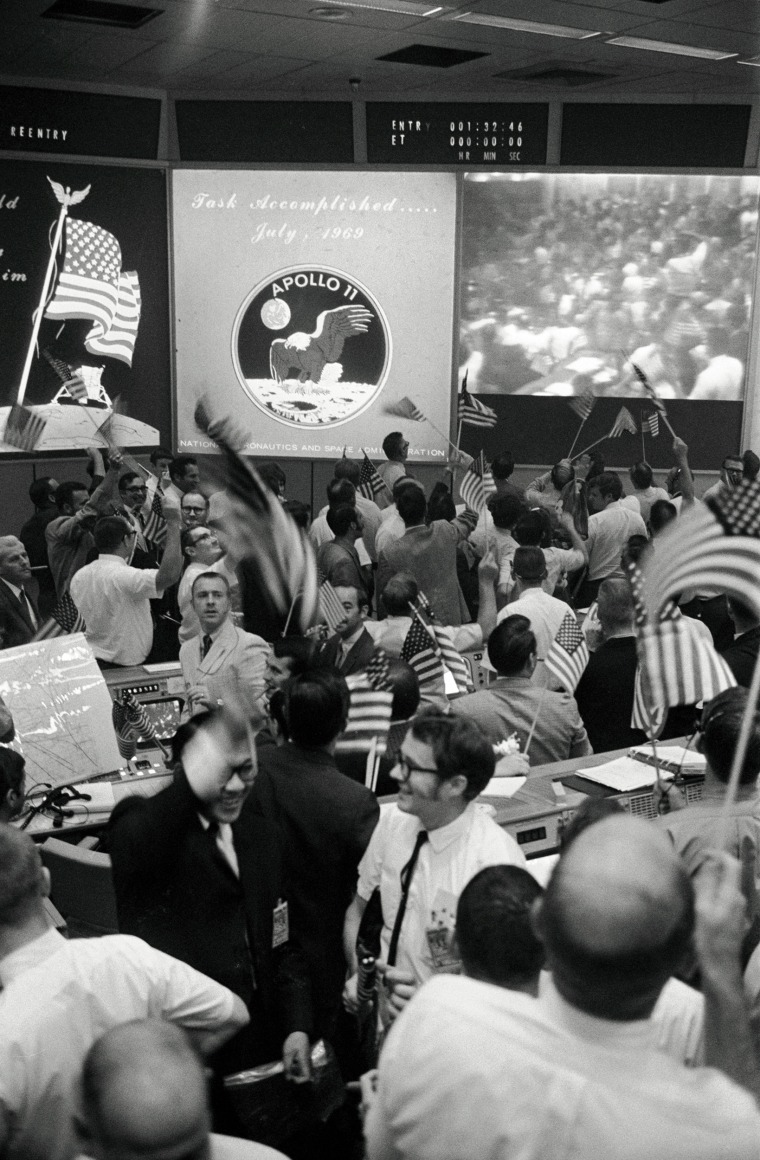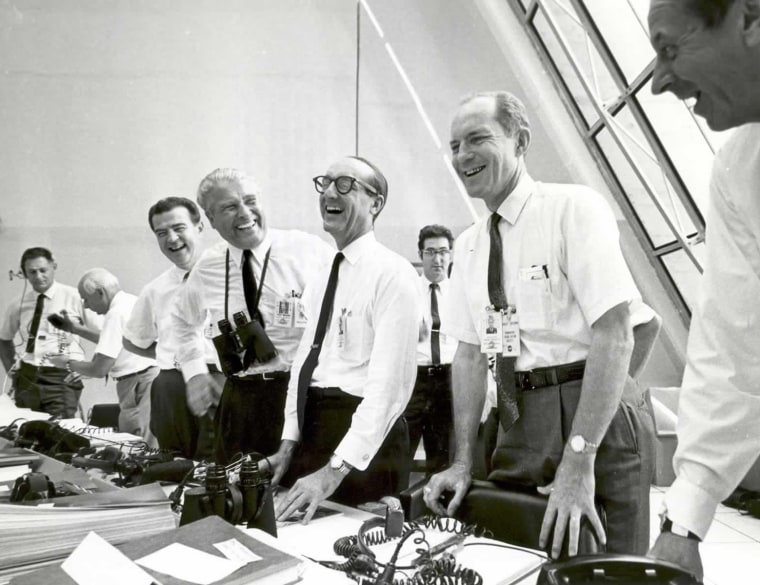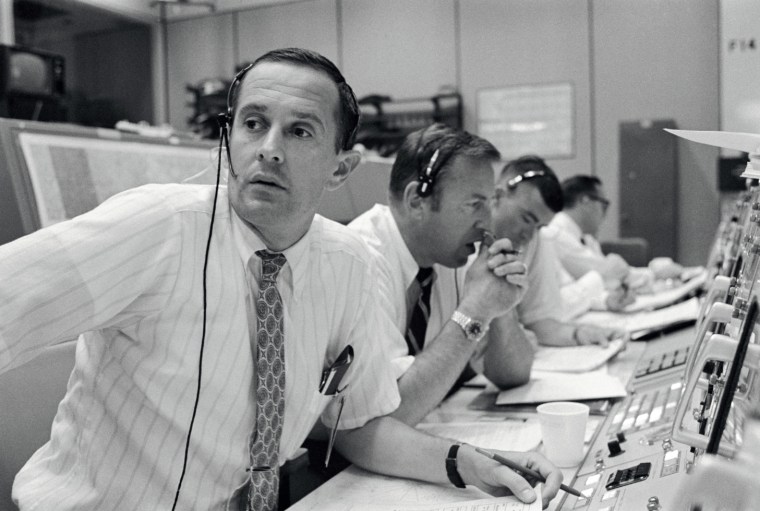NASA astronauts are trained to handle just about any problem that arises during a mission — but that doesn’t mean they’re on their own.
From the dawn of human spaceflight through the Apollo and shuttle eras to today, the men and women who venture into space know that, when problems arise, dozens of engineers, flight controllers, doctors and other experts back at mission control in Houston are just a radio transmission away.
The back-and-forth between astronauts and mission control seldom gets much attention. But now that NASA and the University of Texas, Dallas have digitized 19,000 hours of recordings from the historic Apollo 11 mission, we can listen in on some of the most remarkable examples of the teamwork between astronauts and their ground-based colleagues.
"The real story is the mission control side of things," says Ben Feist, a Toronto-based software engineer who is organizing and processing the audio for placement on a NASA-sponsored website. "How did they do it? How did they send everybody to the moon?"
John Hansen, a speech researcher at the university and principal investigator for the project, has a simple explanation for the mission’s success: “One of the things that comes across is that each of the people working for NASA is proud of what they do. They were always working collaboratively."
An unfamiliar alarm
Take this dramatic exchange between the astronauts aboard Eagle, the Apollo 11 lunar lander, and mission control that unfolded as the craft descended toward the moon’s rocky surface on July 20, 1969:
"Program alarm," Neil Armstrong radioed back to mission control as he eyed the readout on his computer console. "It's a 1202."
"1202," Buzz Aldrin echoed.
What did the alarm mean? Should they abort the landing? Despite years of training, the astronauts had never dealt with a 1202 alarm. Neither had some workers back at mission control.
"1202? What's that?" a voice asked.
"It's executive overflow," another voice answered, indicating that Eagle’s computer was doing too many things at once, and was postponing its lower-priority tasks. "If it does not occur again, we're fine."
By then, 20 seconds had passed since the alarm sounded. Eagle was just 33,500 feet from the surface and still descending. The astronauts needed an answer.
"Give us a reading on the 1202 program alarm," Armstrong said.
"Roger, we got you, we're go on that alarm," came the reassuring reply.
As it turned out, the 1202 alarm did recur. But Armstrong and Aldrin made it to the surface safely, as we all know, and the rest is history.
Lighter moments
Other, less dramatic portions of the tapes spotlight the camaraderie and lighthearted banter that are such essential ingredients for team-building.

In one clip, recorded minutes before the 363-foot-tall Saturn V rocket lifted off from Kennedy Space Center in Florida, ground controllers can be heard telling Armstrong, Aldrin and the third member of the crew, Michael Collins, to flip various switches in preparation for launch. One of the astronauts says, "It sure has been a nice, smooth countdown."
Another clip captures a playful remark about the booze-soaked celebrations that were expected in Houston following the astronauts’ return. "You throw a match in that Clear Lake area, and it'll explode," says a voice in mission control.
Mission control also helped the crew feel connected to Earth by reading the day's news. In one such instance, the news roundup ends with a story about an oatmeal-eating contest.
"I'd like to enter Aldrin in the oatmeal-eating contest," says Collins. "He's on his 19th bowl."
No easy task
NASA's mission control center was, and still is, located in the nondescript Building 30 on the campus of Johnson Space Center in Houston, Texas. The main Apollo control room, which is currently being restored, had 20 computer consoles arranged in four rows, facing large screens displaying critical information. Numerous personnel in other rooms, all connected via headsets, supported the mission — and the most critical conversations were recorded.

Digitizing the recordings was no easy task. Each of the 170 tapes making up the collection held 30 separate audio channels, and the tape recorder needed to play the tapes — the only one of its type in existence — could only read one track at a time. That meant it would have been necessary to play back each tape 30 times — a process that would have taken years.
So Hansen's team ordered a custom-built read head that allowed all 30 tracks to be played back at the same time. This shaved the digitization time down to four months.
NASA has uploaded all of the audio to the Internet Archive, a nonprofit website that hosts cultural artifacts in digital form. Right now, it's hard for casual users to make sense of the files, so Feist, who previously built a website for Apollo 17 allowing visitors to relive the mission in real-time, is organizing the audio to make it more accessible. He hopes to have a new Apollo 11 portal built in time for the mission's 50th anniversary next year.
Greg Wiseman, a NASA engineer who worked on the project, said the ultimate goal is to identify all the voices on the tapes and pay tribute to all the people who helped orchestrate one of humanity's biggest moments.
"Once the audio gets out there, maybe people will say, 'Hey, that was my Dad, or that was my Granddad,'" he said.

